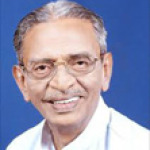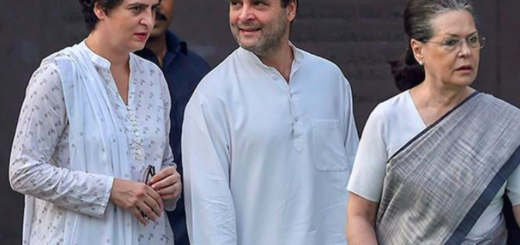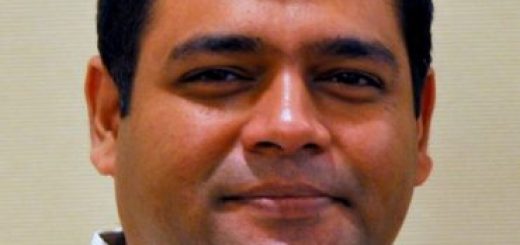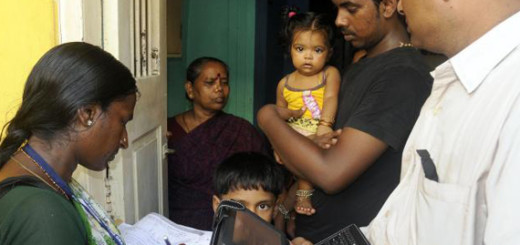Keeping it Parliamentary – Budget session, an Eyesore!

Editorial, in the Hindu, February 24, 2016
(Note: Turbulent backdrop of unrest indeed is what one sees every where in India today from Kashmir to Kanyakumari, East cost to West coast. Politics in India has become really a very dirty business. It used to be much more orderly and dignified in older times. Now what we see in India is disorder and irrational behavior on the part of every one, on the part of the ruling party and opposition, among the young and old, all of which makes one feel ashamed of being a member of the “biggest democracy” in the world. What we have in fact is “Mobocracy” and disorderly conduct, instead of dignified collaboration in the parliament between the ruling party and the opposition. Hence the warning from the president: “democratic temper calls for debate and discussion, and not disruption or  obstruction”, not unleashing the brute might of jungle raj. Immature and passionate behaviors may be expected from college students but denying freedom of expression, on one plea or another is ill-becoming for the ruling class, supposed to be mature people. james kottoor, editor.)
obstruction”, not unleashing the brute might of jungle raj. Immature and passionate behaviors may be expected from college students but denying freedom of expression, on one plea or another is ill-becoming for the ruling class, supposed to be mature people. james kottoor, editor.)
Parliament’s Budget session opened on Tuesday against a turbulent backdrop of unrest on university campuses, the Jat agitation in Haryana, an agrarian crisis, terrorist strikes and attacks on freedoms. In a bid, therefore, to blunt an anticipated attack by the Opposition, the Modi government has adopted a strategy to confront its critics directly by making the JNU “sedition” controversy the centrepiece of this session. MPs from the Bharatiya Janata Party, rather than those from the Opposition, have already given notice for a discussion on the subject ahead of the presentation of the Union Budget. By presenting itself as the flag-bearer of nationalism, the BJP believes it will be able to seize the advantage from the Opposition while detracting attention from economic and governance issues. Already, the BJP and the Sangh Parivar are building public opinion for the “nationalist” cause through various programmes, including vigilante activity by RSS sympathisers. In presenting the majority community as being under siege, the BJP and the Parivar have shifted the discourse to anxiety about the country being threatened by “anti-national” elements.
President Pranab Mukherjee’s customary address to Parliament has, in fact, set the tone. It ended with a reference to Subhas Chandra Bose, one of the many heroes of the freedom struggle whom the BJP has appropriated as an icon, and quoted him as saying, “Nationalism is inspired by the highest ideals of the human race.” The President also impressed on MPs that the “democratic temper calls for debate and discussion, and not disruption or obstruction”. For his part, Prime Minister Narendra Modi expressed the hope that Parliament would be utilised for “constructive debates”. The opening days of the Budget session traditionally leave little space for the Opposition. The sittings in the session’s first half, in any case, will be dominated by the President’s Address and the debate on it, the introduction of and discussion on the Union and Railway budgets and private members’ business. The government has also prioritised the passage of the Enemy Property (Amendment & Validation) Bill to replace an ordinance, and the Election Laws (Amendment) Bill that provides for delimitation of constituencies in West Bengal following the exchange of territories with Bangladesh. By proposing a discussion on Rohith Vemula and the JNU crisis, the BJP has further eroded space for the Opposition to seize the initiative. With elections to five Assemblies expected to be notified soon, the debate will obviously be framed in a surcharged context and political parties will be especially keen to play to the gallery. Indeed, given that the BJP-led National Democratic Alliance is not bound by lack of numbers in the Rajya Sabha in getting money bills passed, the government may be tempted to resist the parliamentary etiquette of letting the Opposition shape the session. This would be a mistake. The government has not yet completed its second year in office, but Parliament is already stuck in deadlock. Unyielding postures during this session on either side could stall all forward movement.

















Sri Varghese Pamplani wrote: Referring to the Editorial of the Hindu of the 24th instant and the considered comments of Dr. Kottoor, I feel that the Indian Parliament is a microcosm of the people it represents. Look at critically the members of the legislative assemblies and the parliament. Most of them are thugs and criminals with poor educational background. They might have visited educational institutions only for pelting stones and damaging property or to beat and maim students and teachers or to use the premises for antisocial activities such consumption of alcohol and drugs, prostitution etc. In May last year I was in UK during the general elections.There were no processions or rallies, no announcements through amplifiers, no banners or writing on the walls, no bursting of crackers and no victory marches. At the most candidates make a few house visits. Every activity is done in a civilised way. Another aspect seen was the enforcement of rule of law uniformly . People are made to behave by imposing hefty fines; for traffic violations the fine in UK is £50 so also for exceeding fee based parking time, in California the fine for traffic violation 500, for throwing litter on the streets $1000.
A view may be taken that a society steeped in superstitious religion and its appurtenances and waste the major portion of its time, energy, money and efforts in engaging in matters on connected with their particular brand of religion cannot and will not make economic and social progress. In India the priority does not appear to be intellectual, economic and social progress but undertaking religious activities such as pilgrimages to the so called holy places and shrines, participating in long winding processions which quite often cause great inconvenience to others, wasting time for charismatic circuses, bible conventions, novenas and sundry other meaningless and time consuming religious “ thamasas”, dumping sacks full of money before the inert images of innumerable gods and goddesses and religious motifs even on the walls of lavatory or a lamp post and what not. The very people who are so magnanimous towards replicas of gods/goddesses may not spent towards removing the accumulated filth in their streets. Religious outfits in our midst operate in autocratic manner unmindful of the sensitivities and sensibilities of people. For instance Sunday masses in Catholic Churches commence from the wee hours of the morning and last hours together. Children are compelled to attend long duration masses and catechism classes on Sundays leaving little time to engage in activities useful to them in later life. During summer holidays too they are forced to attend various religious camps thus denying them opportunities for personal development in other areas like art and culture, music and dancing, theatre, sports and socialising. In contrast in UK the first Sunday mass commences at 8.30 a.m. Catechism is along with the mass at 10.00 a.m for less than an hour. Week day masses after 9.00 am or 10.00 a.m., no morning mass on Saturday; Wednesday total holiday with door of the churches shut and locked: everything in low key. In countries like Australia, Canada were Keralites migrate the position is similar I was told. In Kerala Cash Making Institutions are on the prowl looking for brainless prey to pounce on. As the late Cardinal Padiayara had joked even in hell nuns and priests would establish schools and colleges and make money. Societies with excessive zeal for religion are laggards in economic and social spheres. There seems to be an inverse relationship between religion and progress. A society which exhorts its members to shun the world in front of them for a heaven here – after for a good time is fooling them the most. But the priesthood, the privileged rich and the powerful enjoy the pleasures of the world to the hilt, play the ultimate con game. Where is the soul sans the physical body.